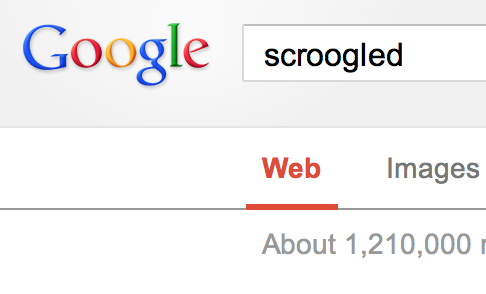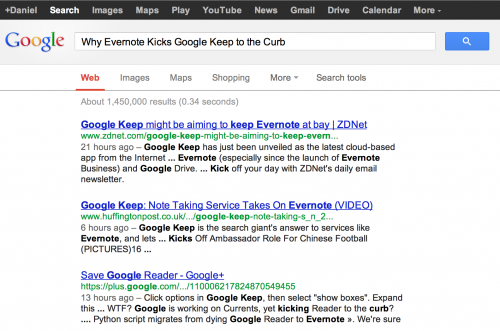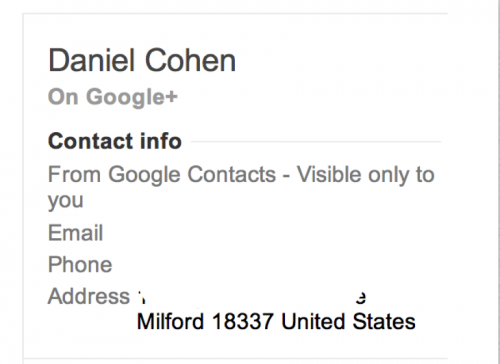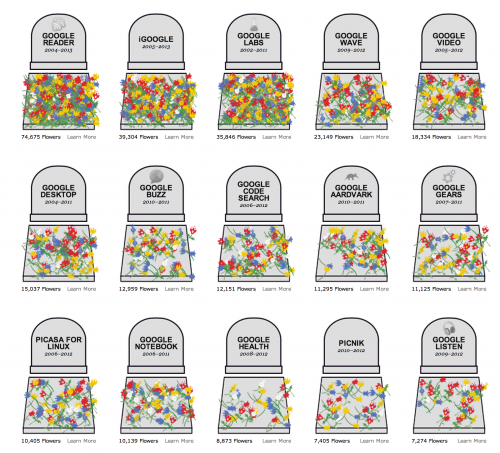Google Reader and Google Keep are two different services, but when placed side by side they offer a cautionary tale for anyone using the web. There has been a good deal of chat among the Gear Diary team on our backchannel, and Judie, Mike, Carly and I have been further discussing the demise of Reader and the introduction of Google Keep among the four of us quite a bit. Here’s some of what we have to say…
As Joel posted Wednesday, Google has just rolled out Keep, their Evernote and OneNote competitor. Evernote, as you likely know, offers users a powerful free option, but those who want to take maximum advantage of all the service offers generally opt to pay for a Premium Subscription. At $45 per year, it isn’t a lot of money, but it is money. Google’s offering, on the other hand, is absolutely free — at least from the perspective of cash money. And while Evernote could jack up their price at any time, and Google Keep could eventually eclipse Evernote’s functionality (because after all, Google has the resources of … Google), there is no way I would ever use Keep.
Why? Simple — Google Reader.
As Google just demonstrated, using their products for free — save the cost of whatever info they might manage to glean from your personal information and browsing history — means that the company can do what they want whenever they want with the service. That’s why they could simply decide to shut down Google Reader (a service all of us here on GD rely upon) and then remove the link to it from their menu bar just a few days later. From a financial perspective, making the change costs them nothing; they don’t need to care that we all all a bit angry or frustrated. They can do what they want, when they want, and that’s the end of the story.
Evernote, on the other hand, depends upon people liking the service so much that they are compelled to move from Evernote Free to Evernote Premium. Evernote needs subscribers because that is their revenue source. That, in turn, means they have an incentive — like the health and future of the entire company — to keep the service going and to constantly work to make it better, more attractive and, in turn, more profitable.
I asked my fellow Gear Diary Editors if they are inclined to try and potentially use Google Keep. Here’s what they had to say…
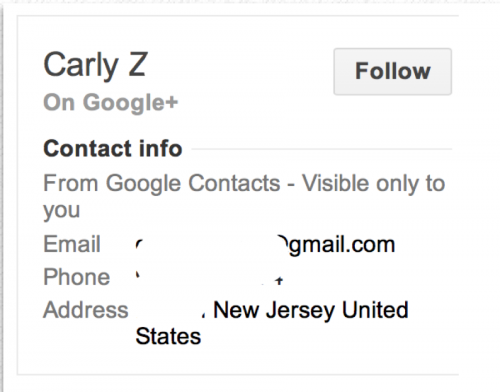 Carly: Google Reader’s shutdown makes me extremely concerned about my entrenchment in Google going forward. What scares me isn’t that they shut down a service I liked, what scares me is that their reasoning is vague (“didn’t fit core business”). Exactly what is Google’s core business these days? Ads mostly, with a healthy dose of data monitoring and mining as well. What was Google Reader? An insight into how millions of people interacted with websites. Granted, I am looking at this from an outsider’s view, but it seems to me there is a ton of juicy, valuable data to be found in how users track their favorite websites.
Carly: Google Reader’s shutdown makes me extremely concerned about my entrenchment in Google going forward. What scares me isn’t that they shut down a service I liked, what scares me is that their reasoning is vague (“didn’t fit core business”). Exactly what is Google’s core business these days? Ads mostly, with a healthy dose of data monitoring and mining as well. What was Google Reader? An insight into how millions of people interacted with websites. Granted, I am looking at this from an outsider’s view, but it seems to me there is a ton of juicy, valuable data to be found in how users track their favorite websites.
And even if I accept that Google Reader really did fall out of Google’s main business, the fact that their business is so vague makes me worried about a service like Keep. Either Google is going to inundate users with ads, or they are going to possibly use the content of notes as a way to mine even more data about its users. If Google Reader wasn’t a core business, and Reader was all about a firehose of data being managed, how then is Keep to become a core business? It isn’t, unless Google plans to track every word typed into the service.
I am also a bit concerned about Gmail now, too … will parts of Gmail be stripped away and given to the albatross that is Google+? And will Google Calendar be able to survive as a standalone? I keep looking at the Google services I use, and now I can’t help but wonder “Is this next on the chopping block?”
So no, I won’t be touching Google Keep. And I plan to back my data up via Google Takeout at least once a month. And for the first time in a very long time, I am keeping one eye on the alternatives to Google services … just in case.
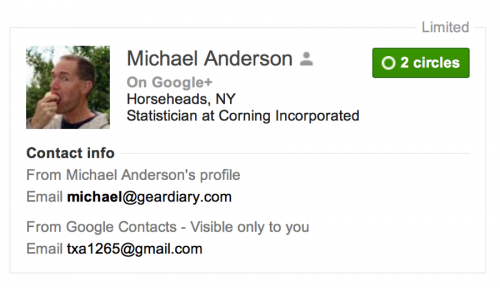 Mike: For me the bottom line is that the Google Reader Cancellation is a reminder that Google IS Google+.
Mike: For me the bottom line is that the Google Reader Cancellation is a reminder that Google IS Google+.
Recent events out of Google have caused me to go back to think about Google and its core business: Search. This is certainly not the first time I have done this — in fact, a while back I made the controversial claim that Google was now more of an advertising agency than a Search technology company. My basic position was that public companies are judged by how they bring in revenue, and for Google nearly all revenue is from advertising. To me, that means anything that bolsters advertising revenue is good, anything that diminishes it is bad (simplistic, I know).
When ‘search was king’ at Google, the mantra was get customers on their way as quickly as possible – they openly ridiculed the densely populated Yahoo! screen, saying that by providing the best search they benefit customers and companies alike, which in the end benefits Google through advertising. Google Alerts allowed you to set up email reminders for when new items appeared in certain search queries, and became widely used among a certain niche. Again, Alerts sent you elsewhere, but there was a strong value proposition for searchers and companies alike. Same for Reader … you scan RSS and head to non-Google sites, which pretty much all contain ads back to Google, again benefitting customers, site-owners and Google. Even later additions like Google News and iGoogle offered curated (and likely paid) news slots that allowed you to go elsewhere very quickly.
But three things changed all of this: mobile, social and GMail. GMail is nothing new, but as it has developed and grown into a huge service with millions of people leaving thousands of emails around (I have 55,000 in one of my accounts, and I thought I kept my email fairly clean!), Google suddenly has a massive dataset to use with all of those servers and software bots to mine for trends, topics and other saleable items. GMail might be guilty of everything in the ‘Scroogled’ or ‘GMail Man’ ad campaigns by Microsoft, but in general users don’t care – they acknowledge the trade-off and move on. But GMail taught Google a valuable lesson – the more data users provide, the more money Google makes. It is that simple – and therefore Google transitioned from ‘quick on and off’ to ‘you can leave, but tell me EVERYTHING first’.
It is really hard to think back 7 or 8 years in terms of smartphones. I was still using a dedicated PDA and a basic cell phone then. Palm, Windows Mobile and particularly BlackBerry ruled the world. But there was a real push to do more on these devices than just simple email and messaging. By the time the iPhone arrived, other companies were working on or releasing full-featured devices … but it was the iPhone that captured public imagination and changed the world. It also changed how the world viewed the web — on the small screens there simply wasn’t enough room for ads, search data was harder to track, and all of that was lost in apps. So with Android, Google ensured they would have a continuous revenue stream and information stream, and the app model of free with ads ensured Google could have eyes on whatever and wherever you were.
As for social … sites such as Facebook in particular are trying to build a sort of portal that you really never leave. Chat, messaging, open discussions, news, pictures and video and more — all on one site surrounded by your friends. This presents a major problem for Google, as they get no data when someone stays on Facebook, as they are essentially invisible to Google. So after failing with Buzz and Wave, Google came up with Google+. Aimed at being a hybrid social network that seeks to keep you on Google territory as long as possible, it quickly became more … and less. More because suddenly everything you did on a Google property was a Google+ action – like that YouTube video? That was a +1 on Google+, and so on. It felt like a numbers game, where Google leveraged their monopolies to appear larger in the social space than they actually were. The appeal for Google is clear – the more time you spend on G+, the more data they get from you.
As for how Google+ is ‘less’? Well, in spite of the falsely inflated numbers, and in spite of forced integration and sign-ups as part of getting an Android device, Google+ remains fairly marginal in terms of appeal and reach. Not even close to Facebook, they don’t supplant Twitter for news, Instagram for pictures, Pinterest for random food and clothing pics (can you tell I’m not a huge fan?), and so on.
Which brings us back to Google Reader and Keep. As soon as the cancellation of Reader was announced, there was quite a bit of backlash. Some of it was because Reader did what it did so well, it killed off the market. This was a Microsoft tactic, which they did effectively with ‘Internet Mail & News’ back in the very early web days.
But some of the backlash was also because it didn’t make any sense – Reader didn’t cost much to sustain, as they weren’t doing much to improve it anymore, so it is clear that it wasn’t about the money. Even moreso, very quickly you had some seriously high volume sites showing data about the huge differential on what is driving traffic – it IS from Reader, and it is NOT from Google+. That pretty well shuts down the theories about how ‘marginal’ Reader was and that was why it was shuttered.
What all of this comes back to is a strategic change – Google is NOT about Search, it is Google+. Search is necessary, but since search will generally drive people off the site Google has changed up their approach so that advertisements, paid sites and Google properties get top billing – and apologists who like to pretend that isn’t true need only check out this article about the NCAA tournament to see the difference between Google (all about Google) and Bing (broad set of choices) to realize how far Google has headed in the wrong direction.
Further evidence of the dismantling of search? Apparently now Google Alerts are pretty much broken across the board, without any notice. Which is what has now happened with Reader – Joel alerted us when Reader disappeared from Google Play, and Judie noted when it no longer showed up in her menu bar, and I also found that in the full list of products it is gone. Sure you can still get to Reader, but Google clearly doesn’t want you to easily find it!
So what does this have to do with Keep? One angle is that we can’t trust Google if they will so quickly screw millions of customers over for no good reason. While true, I think that the way they handle our personal data and some of the advertising we get as a result already let us know that (and yet millions of us stick with GMail in spite of it).
For me, the reason I will not touch Keep is that it telegraphs Google’s motives like a toddler waddling towards the shiny breakable thing on your end table. Google knows that people store everything in Evernote: personal lists, business tasks and todos, friends info, blog drafts, kids’ birthday lists, groceries, and on and on. They also can imagine the money they can make selling all of that data, associating personal info with emails and other documents that enrich the context of each bit of data.
To get market share they do what they do best – wrap it up with their other products and make it free. Next step will be to give it more features while simultaneously breaking interoperability between their stuff and other utilities (like they have been doing to cripple Windows Phone). These tactics might seem both familiar and evil, and that is because we have seen them before – from Microsoft 15 or so years ago. So while I am sad to see Reader go, it is one less tendril that has me tied to Google. I have switched to Bing for search, Safari (FireFox on PC) for web browsing, no longer use Docs, and so on. The more they tighten their grip on my data, the more services slip through their fingers.
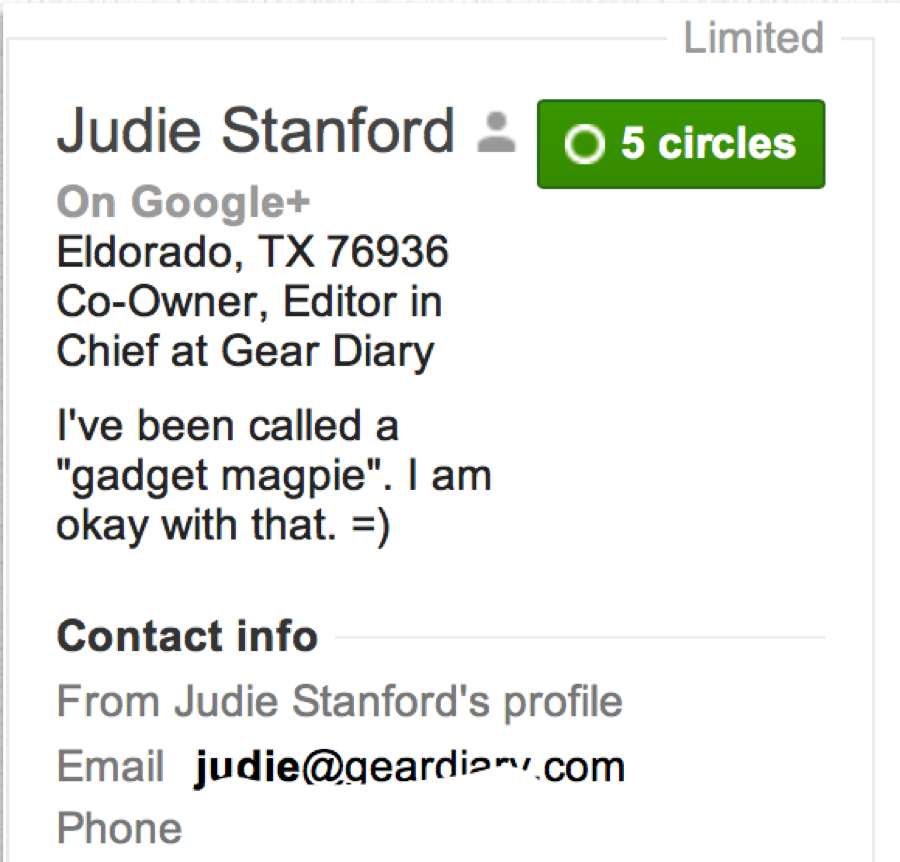 Judie: This is going to be a bit of a rambling response, so please just bear with me and I’ll eventually get to the point …
Judie: This is going to be a bit of a rambling response, so please just bear with me and I’ll eventually get to the point …
Back in the late 90s and early 2000s, Julie and I used to regularly say “Google is my friend” when someone would ask how we found an obscure fact so quickly; we would even say it to each other at times, and the funny thing is that we were only half-joking! Google search was better than any of the other search engine options available at the time, because its algorithm was extremely good at finding specific data across the web.
Before you could even specify Google as your default search engine, I was one of the millions who would automatically key www.google.com into my browser whenever I needed info on anything; calling up Google search became second nature. I doubt any of us gave a thought as to what Google might be doing with the information they gathered from us every time we entered a seemingly innocuous search phrases such as “best full body workout”, “Republican rally Austin, Texas”, “Church of Scientology”, “how to remove SD card from DVD slot on iMac”, or “composting toilet reviews”.
Why should we care about the information Google was collecting from us? We weren’t searching for anything illegal or immoral, right? What difference could it possibly make? But what we were doing was freely giving Google the type of information that we might not have ever shared with even those we trusted the most; we were essentially allowing Google into our heads as it became second nature to search Google for information on everything and anything the minute we had a question about it. “How to remove blood stains”, “tide tables”, “largest Yeti cooler size” …
Do enough searches for seemingly unrelated items, and patterns begin to emerge — patterns that could and would be used to make money for Google.
Google also offered other services that were seemingly unrelated to search, but they all had one thing in common — advertisements. Maybe there were times when it seemed a bit disconcerting that Google would know to show us ads that could only have been placed based on searches for specific items that we had performed in the past, but we got over it because some of those ads were for things we might actually want to buy. Eventually we just came to expect it, I think. And how could any reasonable person possibly begrudge Google a few targeted and relevant ads when they started giving us free email that came with 7GB storage (an unheard of amount at the time) along with the best spam filter any of us had ever seen?
I think many of us failed to consider the ramifications of giving a company access not only to the terms that we searched for, but to every email we would ever send or receive. Google even made a point of telling us that there was no need to delete email; they were giving us plenty of storage space so we could keep everything … but if we really needed more, it could be had inexpensively. Google even introduced their own web browser, Chrome, which offered services such as this one …
But Google had even more in store; in order to send readers to the most relevant sites so that people would be in a good mood when they clicked the displayed Google ads, Google introduced an algorithm called PageRank to numerically evaluate every site’s value. Suddenly sites weren’t being judged on their own merits (such as the content they produced or the amount of people who visited daily), they were being judged on the sites that they linked out to and — even more importantly — the backlinks from other sites based on those linking sites’ values.
In the early to mid 2000s, it was common for advertisers to look at a site’s PageRank when determining whether or not to advertise, and if so for how much; it was also common for PR companies to check PageRank when deciding who to send review samples to. Whatever its original purpose may have been, PageRank became a snap judgement value indicator for websites; anyone who had a site could breathe a sigh of relief if theirs scored anything higher than a 4 (out of a possible 10). At some point in 2009 or so, Google became extremely negligent sporadic about updating PageRank numbers — even going so far as to tell webmasters not to get so hung up on their PageRank, because there were other factors which were more important — but even today it seems that many never got that memo.
In February 2011, Google introduced Panda, their new algorithm that was supposed to lower the search engine rankings for ‘low quality’ or thin sites; what it did instead was force many webmasters to rethink everything they thought they knew about blogging as they watched their sites appear lower and lower in Google search ranking results, sometimes further down than the scraper sites reposting their content.
Google has always taken steps to be much more than just the best search engine and the best free email service. Over the years, Google has introduced a plethora of web-based applications — many were direct competitors to other popular services at the time. Some of the Google products I’ve used include Google Video, Google Docs, Google Buzz, Google Labs, Google Wave, and Google Apps. A few of these were original Google concepts that even now might be considered ahead of their time, and some were eventually rolled into other services offered by Google, but the one thing that all of these free services had in common is that every one of them was eventually discontinued by Google. In fact, if you want to see a disheartening list of some of the more popular services Google has introduced only to later axe, look no further than this post on Salon.
I currently use Gmail, Google Calendar, Google Accounts for Gear Diary (we were grandfathered in for the free service), Google Reader (and several iPhone, iPad, Windows Phone and Android apps that import Google Reader information), Chrome, Google Play, Google News, Picasa, Google Maps, and YouTube. I pay $50 per year for 200GB storage (grandfathered again) on one of my Google accounts, and of course I have an Android phone. I have been an early adopter (essentially a beta-tester) of many Google products for what seems like forever, and I am completely invested in Google services.
But here’s the thing: I’m feeling the loss of Google Reader more than I expected to, and I’m disappointed and more let down than I probably have the right to be. Google Reader was a free service, and of course Google had the right to kill it at their discretion … but this time, it’s causing me to reevaluate the ways that I use Google and their free services. I honestly don’t have any desire to invest myself in another Google product, especially when there are other, better products already available. I also don’t see the need to give Google access to even more of my private information. As it stands, Google knows more about me than my mother, my daughter or my husband, and they have even inserted themselves into the way I have to manage Gear Diary; I’m growing less and less comfortable with that.
So there you have it — the four Gear Diary Editors — none of whom have strong feelings about this, and all of whom will not be going anywhere near Google’s latest offering.
What do you think? Is Google Keep of interest to you? Can you see yourself using it? Why or why not? Let us know in the comments.
